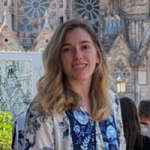LEE Definition
Lived Experience Experts (LEEs) are people living with an inheritable bleeding disorder, as well as their caregivers and family members who are directly impacted by the condition. Their diverse backgrounds and experiences provide unique insights into how research and care can be improved. All LEEs have valuable knowledge and can choose to participate in research in various ways. LEE perspectives must guide which research is conducted, how it is carried out, and how the results are shared. Because the inheritable bleeding disorders community is diverse, research must include input from a wide range of LEE perspectives to be successful.
Mission
The mission of the LEE Research Advisory Council is to ensure that lived experience drives and influences the inheritable bleeding disorders research process.
Purpose
- The LEE Research Advisory Council is a voluntary body made up of 6 to 8 LEEs.
- Their role is to provide strategic advice and recommendations to NBDF staff and others focused on promoting and supporting LEE-centric research initiatives, as outlined by the National Research Blueprint (NRB).
- The Council offers a representative and diverse LEE perspective.
- While the Council does not have formal authority over decisions, its recommendations can significantly influence policy, strategy, and operations.
Commitment to HASI Principles
NBDF is dedicated to diverse representation through this initiative to enhance Health Access and Strategic Innovation (HASI), and belonging, ensuring that research findings reflect the full community. Representation from individuals across all socioeconomic backgrounds, cultures, ethnicities, ages, identities, and geographic locations is essential.
Eligibility Requirements
To serve on the LEE Research Advisory Council, individuals must meet the following qualifications:
Age and Residency
- Must be 18 years of age or older.
- Must be a resident of the United States.
Lived Experience
- Must be a Lived Experience Expert: either living with or caring for someone with a bleeding disorder.
Updates:
Application cycle closed (2-year commitment)
Will reopen in 2026 for the 2027 cohort
Please subscribe to our Research communications to get notified with any updates.
Meet the LEE Research Advisory Council

|
Christy Miller |
Dr. Christy Miller is a two-time graduate of the College of Saint Rose with a dual degree BS in early childhood education and early childhood special education, and an MEd in professional special education. She also completed a Ph.D. in special education with high distinction at Liberty University. Her dissertation research focused on a gap in the research within the bleeding disorders community: the impact of inherited bleeding disorders on social-emotional learning. With more than 20 years of experience as a teacher, coach, and supervisor, Christy is passionate about early childhood and disability advocacy. Having been diagnosed with FVII deficiency as an adult and her children having a mix of FVII deficiency and a platelet function disorder, she is heavily involved with her local bleeding disorders community, also serving on the board of CHES. She lives in the Pittsburgh area with her husband, four children, cats, and chickens. In her spare time, she enjoys sewing, reading, traveling, Lego building, and gardening. Her love of Lego has led her to work on becoming a LEGO® Serious Play ® Certified Facilitator to help businesses plan for change and growth while building strong, connected teams.

|
Daniel Abraham |
Daniel Abraham is a dedicated advocate for the bleeding disorders community who balances two distinct careers: a professional actor and performer, and a lead software developer for a small tech firm. A man with severe hemophilia A, he has championed patient needs for several years through the Virginia Bleeding Disorders Foundation, engaging with both state and federal policymakers. Daniel brings to the Research Advisory Council a commitment to shaping studies around real world patient priorities, expanding research into women’s bleeding disorders, and ensuring inclusivity for diverse communities. Outside his advocacy and foundation life, he’s slipped into the Santa Claus coat more than a few times — ask him what it’s like to wear the red suit!

|
Eliza VanZweden |
Eliza VanZweden is a biomedical engineer who works in research and development of pharmaceutical products for animal health. As a patient diagnosed shortly after birth with Glanzmann thrombasthenia, Eliza advocates for individuals with bleeding disorders, especially women and ultra-rare bleeders.
Eliza is a recent alumnus of the National Youth Leadership Institute (NYLI) of the National Bleeding Disorders Foundation, where she developed advocacy, education, and research initiatives. Eliza has shared her patient story with lawmakers to promote health care policy reform, co-authored bleeding disorders research publications, advised on clinical trials, and in 2024 was selected as a Susan Skinner Scholar by the World Federation of Hemophilia. She currently serves on the Hemophilia Foundation of Michigan board of directors.
In her free time, Eliza enjoys crocheting, hiking with her dog Rocky, and listening to podcasts.

|
Kyle Davis |
Dr. Kyle Davis is a board-certified Pediatric Hematologist-Oncologist at the Indiana Hemophilia and Thrombosis Center (IHTC).

|
Mayra Cantu |
Mayra Cantu, from Oswego,Il. I am a symptomatic hemophilia A carrier. I have three sons with severe Hemophilia A. The boys keep me on my toes. I have been involved in the bleeding disorders community for 20 years now. I’m looking forward to this new journey and opportunity.

|
Raymond Stanhope |
Raymond “Ray” Stanhope LEE (Lived Experience Expert), President of the Lone Star Bleeding Disorders Foundation and Co-Chair LEE WG for the National Research Blueprint (NRB), he is a person living with severe hemophilia B. For over 30 years, he has served the Bleeding Disorder Community in various positions. He was elected to the National Hemophilia Foundation (NHF) Board of Directors as a Regional Director and served as VP of Chapter Affairs for two years. He was then elected to serve as President of NHF Board of Directors for two terms. In the early 2000’s he was asked to serve on the interim Board of Directors for NHF after the previous board voted to dissolve itself. He was elected to the NHF Board of Directors and served two terms as Vice Chairperson and then served three terms as Chairperson of the NHF Board of Directors. During this more than 30-year period he has served on numerous committees, working groups and task force. Presently, he is completing his first term as the President of the Lone Star Bleeding Disorders Foundation after having served as 2nd Vice President for a year. He was awarded the NHF Robert Lee Henry Volunteer of the Year in 1995 and the first ever recipient of the NHF Loras Goedken Meritorious Service Award in 1997 for his remarkable leadership and devoted service. He enjoys working in his yard and does various forms of woodworking as a hobby.

|
Sammie Valadez |
Sammie is a highly regarded member of the inheritable bleeding disorders community and a lived experience expert. Diagnosed with von Willebrand disease (VWD) at the age of 32, she navigates her personal journey with remarkable resilience. Beyond being a person with VWD, Sammie is a devoted mother to a daughter with VWD and another with both factor VII deficiency and VWD.
Her significant contributions extend to the development of the National Research Blueprint (NRB) project, where she serves as the co-chair for the LEE working group and as a steering committee member. Sammie played a pivotal role in shaping the term "Lived Experience Experts" and recognizes the importance of active involvement in research to enhance the lives of individuals affected by inheritable bleeding disorders.
Sammie currently serves as vice president of the Bleeding Disorders Alliance of Illinois. Her extensive involvement in the community reflects her commitment to making a positive impact on the lives of those affected by bleeding disorders. Beyond her professional commitments, Sammie is a passionate advocate, devoted mother, loving wife, and steadfast friend.

|
Shelly Reed |
Shelly Reed is a senior training specialist at HUB International, where she develops and delivers technical training. With an extensive background in learning and development, she has a passion for leveraging technology to innovate learning programs and currently serves as president elect of the Association for Talent Development's Nashville chapter and member of the ATD chapter recognition committee. Shelly has a Bachelor of Arts degree in organizational communication and public relations from the University of Wisconsin-La Crosse. Her love of communication and lifelong learning combined with being affected with von Willebrand disease led her to become actively involved in health education and advocacy within the bleeding disorders community. She has more than 20 years of experience volunteering with the Great Lakes Hemophilia Foundation, the National Bleeding Disorders Foundation, Hemophilia Federation of America, and World Federation of Hemophilia. She is excited to contribute her skills and expertise to the LEE Research Advisory Council. In her free time, she loves to read, travel, check out new restaurants in the greater Nashville area, watch Star Wars, and spend time with her husband and rescue dogs.

|
Stacy J. Pechter |
Stacy J. Pechter, MS, BSN, RN, is a hematology-oncology nurse and nursing informatics specialist with more than a decade of involvement in the bleeding disorder community. Living with a rare bleeding disorder, they bring both personal insight and clinical expertise to their role as an advocate for individuals with rare hematologic conditions.
They have provided care in high-acuity settings at the Mayo Clinic and completed an informatics internship at Atlantic Health System, where they supported the design and management of data systems for the AHS PEACE program—a U.S. Department of Labor Nursing Expansion Grant initiative focused on expanding and diversifying the nursing workforce.
As a member of the CHES Foundation Board of Directors, they work to advance education, research, and patient support programs. They are also actively involved with the Fair Time Coalition, a national advocacy organization dedicated to improving awareness, diagnosis, treatment, and support for women, girls, and AFAB (assigned female at birth) individuals impacted by bleeding disorders and related chronic conditions. Outside of healthcare, they contribute to public service through active membership in the Civil Air Patrol.
They hold a Master of Science in Nursing with a focus on Healthcare Informatics from the University of Colorado, a Bachelor of Science in Nursing from Seton Hall University, and an Associate Degree in Bioinformatics from Rochester Community and Technical College.

|
Sundar Selvaraj |
Sundar Selvaraj is a research specialist at the University of Michigan, Ann Arbor, MI, focusing on biomedical research on factor VIII and hemophilia A. Diagnosed with an ultra rare combination of severe factor XIII deficiency and type 2 M von Willebrand disease, he has a unique perspective, both as a bleeder and a researcher into the fascinating field of rare bleeding disorders. He resides in Canton, Michigan with his wife and two children, and is actively involved with the Hemophilia Foundation of Michigan. He looks forward to embracing new opportunities and challenges and is confident that the valuable experience he has gained as a bleeding disorders advocate representing HFM will guide him in this exciting endeavor.

